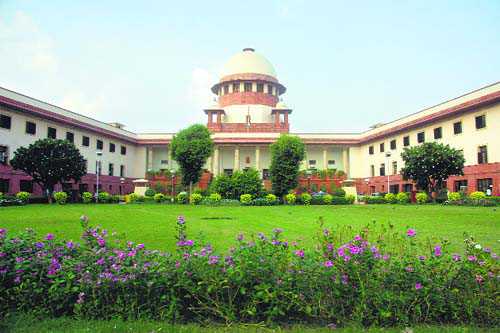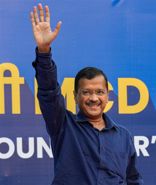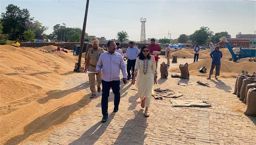
Faizan Mustafa
THE non-appointment of Lokayukta in spite of repeated orders from the highest court is an indication of weak governmental commitment to have an upright and independent anti-corruption watchdog in Uttar Pradesh (UP). There was no justification for the Samajwadi Party government in the state to keeping the Lokayukta’s position vacant for 21 months, but then there has been no Lokpal at the Centre for more than 24 months. Narendra Modi himself as Gujarat Chief Minister had not appointed a Lokayukta for as many as nine years.
Has the Supreme Court gone too far in appointing the Lokayukta for UP? Is it a legitimate exercise of power judicial power to do ‘complete justice’, or a case of judicial outreach? What about the appointment and functioning of lokayuktas in other states?
The framers of the Constitution had realised that for any society to develop it must be based on ideas greater than mere rules that govern interaction among its constituents and provide for a method of sanctioning violations. Thus they provided the courts with the power under Article 142 to do ‘complete justice’. Justice Harilal Kania, first Chief Justice of India, had stated that “[in] cases of hardship the court tries its best to do justice between the parties but if a clear provision of law exists it has to administer law….” He thus accepted the position that the role of the Supreme Court ‘as custodian of the Constitution’ was secondary to that of Parliament.
Even in the Constituent Assembly Debates, Pt. Thakur Das Bhargawa had wondered in what manner the Supreme Court would exercise those powers. The Supreme Court, however, took the view that it has “very wide powers… for due and proper administration of justice. Apart from the jurisdiction and powers conferred on this court under Articles 32 and 136 of the Constitution, court retains and must retain, an inherent power and jurisdiction for dealing with any extraordinary situation in the larger interests of administration of justice and for preventing manifest injustice being done”.
The non-appointment of Lokayukta for a year and a half does not qualify as ‘manifest injustice’. It suggests administrative inefficiency and malicious design to keep the position vacant till a favourable person is identified.
Since the Supreme Court’s repeated orders were not honoured by the Uttar Pradesh Government, the court justified its appointment of the Lokayukta. But ideally the court should have used its contempt powers to ensure compliance rather than itself doing the job of the selection committee and Governor. In any case, the government did inform the court that the selection committee over the previous two days had met for seven hours and there was consensus on three names, with the Chief Justice not raising any objections. But the court went on to observe that the “the failure of constitutional functionaries to comply with the orders of the highest court of the land is deeply regretted and astonishing.”
The court, therefore, indicted the Governor and Chief Justice as well. Justice Ranjan Gogoi and Justice NV Ramanna further ordered: “We, therefore, proceed to exercise our right under Article 142 of the Constitution to remedy the situation by passing an appropriate order.” The Bench thus appointed Justice Virendra Singh new Lokayukta of Uttar Pradesh. Subsequently, the Chief Justice wrote to the apex court that he had not agreed to Justice Virendra Singh’s name and that he had been assured by the Chief Minister that his name would not be included in the five names to be sent to the Supreme Court. It is alleged that Virendra Singh is related to Shivpal Yadav, younger brother of Samajwadi Party chief Mulayam Singh and his son is a party leader of the party in Saharanpur and thus the government is quite happy with his appointment.
Today most states have lokayuktas. But none of these Lokayuktas were able to make any significant impact on corruption. Justice Santosh Hegde failed as Lokayukta to prevent the huge mining scam in which the BJP Chief Minister of Karnataka was involved. He subsequently resigned due to the BJP government’s ‘indifference’ to institution of Lokayukta. Similarly, the Vayapam scam happened in Madhya Pradesh in spite of the Lokayukta being in office.
The UP story began in 2012 after the new Samajwadi government under Akhilesh Yadav was formed. The government was too keen to retain Justice N.K. Mehrotra as Lokayukta, though he had given a clean chit to Mayawati. The government proposed to use extraordinary powers of promulgating an ordinance to extend by two years the six-year-term of Justice N.K. Mehrotra. Justice P.P. Naolekar’s term was similarly extended by the BJP government in Madhya Pradesh.
But government managers were lazy and the ordinance was sent to the Governor after office hours. Since the term of the Lokayukta had already ended by that time, the then Governor B.L. Joshi, who was very close to the BJP, refused to grant assent to the ordinance. The government did not give up, and another ordinance seeking an extension with retrospective effect was sent. The ordinance subsequently became an Act. This extended the term of Lokayukta N.K. Mehrotra, which finally ended in March 2014.
The Supreme Court in April 2014 had not only upheld the amendment, but also asked the UP Government to initiate the appointment of a new Lokayukta. The apex court gave six months to the government, which, however, showed no eagerness in complying with the court’s directives. In July 2015, the court gave one more month to appoint the Lokayukta. Responding to the urgency of the situation, the government sent the name of Justice Ravindra Singh to the Governor. As an old BJP member, Ram Naik took full advantage of the situation and instead of appointing Justice Singh, he sought details of communication between the Chief Minister and the Chief Justice. The Governor noted the objections of Chief Justice D.Y. Chandrachud on Justice Singh’s name due to his proximity to the ruling party. Finally, the Governor rejected Justice Singh’s name and asked the government to start the process afresh.
Subsequently, the government amended the Lokayukta Act and excluded the Chief Justice of the Allahabad High Court from the selection committee. The Bill is still pending with the Governor. In September, a meeting of the selection committee under the old Act was convened and a list of 50 judges was placed before the Chief Justice, who expressed doubts about the legality of the process due to the amendment pending with the Governor.
But then Governor Ram Naik forgot that Narendra Modi himself as Gujarat Chief Minister in 2013 had got a similar amendment made to the Gujarat Lokayukta Act,1986, which too had excluded the Chief Justice from the appointment process and the Congress appointed Governor Kamla Beniwal had similarly denied assent. Modi’s challenge to the appointment of Justice R.A. Mehta as Lokayukta by the Governor had twice failed in the High Court and even in the Supreme Court.
Due to the pressure of the Anna Hazare movement, Parliament had passed the Lokpal Bill in 2013. But the Modi government has so far not taken any initiative to implement it. Will the Supreme Court pass a similar order for the Central government? Delhi Chief Minister Arvind Kejriwal’s latest Bill too is a watered down version of his own Janlokpal Bill. This shows the fear of politicians.
Lokayukta is not the final solution to the problem of corruption. Impeachment proceedings had to be initiated against the Lokayukta himself in Karnataka, eventually leading to his resignation.
The writer is Vice-Chancellor of NALSAR University of Law



























